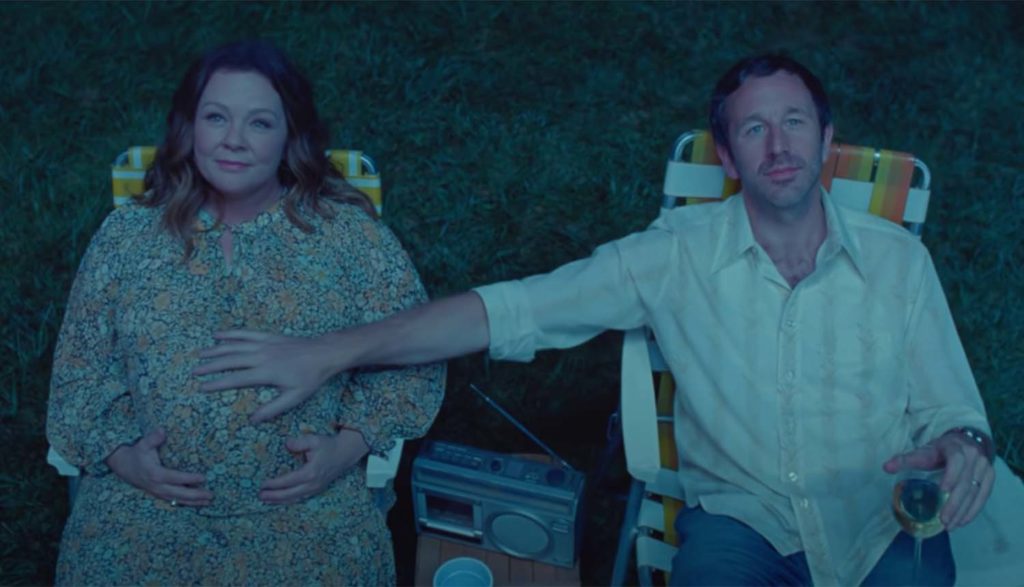When I came into work the morning I watched The Starling, a PG-13 film now playing on Netflix, I didn’t really think much about it.
I sat down at my desk and started the usual routine of answering emails, attending meetings and various other tasks. So as I geared up to watch the film, I didn’t realize that I was not emotionally prepared for what I was about to witness.
I knew what the movie was about because I had watched the trailer: After losing their baby, a couple tries to learn how to live again.
Now, I’m not a mom. I’m not the type of gal who gets baby fever every time one of her friends has one. In fact, I don’t even really enjoy being around kids unless I’m related to them. (I very much believe that my own niece and nephew are the cutest and sweetest kids to have ever existed and nobody can convince me otherwise.) However, I do understand, on some level, the pain of losing a child.
Over the years, several of my friends and family members have suffered miscarriages. And two years ago, someone close to me lost her daughter within an hour of giving birth to her. I’ve seen the loss, the pain and the grief firsthand. It doesn’t go away; you just get better at managing it.
So why in the world would I voluntarily sit down to watch a film about it?
Because (perhaps arrogantly) I believed it wouldn’t affect me because it didn’t happen directly to me.
Less than ten minutes in, I was proven wrong.
The tears started flowing. I had to retrieve a box of tissues from the supply closet. Nothing bad had even happened yet! I just knew what was coming and my own memories flooded in with the tears.
Six minutes after that, tears glistened on Melissa McCarthy’s face, and I cried again.
Why was this so hard?
Logically speaking, I knew the answer. A therapist in the film talked about emotional triggers. How ironic, I thought.
But I’m not like this! My family used to tease me for how I never cried during movies. They used to joke that I was some sort of alien or robot. So why was I sitting in my cubicle at work, trying not to sniffle too loud so as not to disturb my coworkers?
McCarthy’s character, the grieving mother Lilly, asks her husband, Jack (played by Chris O’Dowd), a similar question in the film, referring to the fact that he is in a mental health facility instead of her: “I carried her for nine months. So why are you here?”
Grief, as we learn in the film, can be a strange thing. We can go through the stages of grief slowly or all at once. Perhaps, like Jack, it becomes unbearable to live with. Perhaps, like Lilly, we bury it to survive. But someday, with God’s grace, we all reach that final stage of acceptance.
“One day, you will say your daughter’s name without thinking about it. It will just slip out in remembrance and not in anguish. And that’ll be that,” Jack’s therapist tells him.
Maybe one day I’ll be able to watch films like this and not cry. And maybe not. I honestly don’t know. But what I do know is that it will be important for me to take emotional inventory before I watch something like this again—and, if it feels like it might be too hard or too triggering, ask my editor for a different movie. And if those close to me show interest in a film that I know could be hard for them, I’ll need to ask those friends and family members if they want to invest in a movie that could be really hard on them. Sometimes films can be cathartic. Sometimes they can wreck us a little. We’ll have to evaluate if the “triggers” of a fictional character’s story are worth the tears we will shed.
Even if the movie is a clean, Christian films like Courageous (which also depicts the loss of a child), it’s OK to say we aren’t ready to view something that deals with the loss of a child. And even if it’s been years and you feel like you have reached acceptance, it’s OK to avoid movies that just don’t feel good anymore.
Movies can be so powerful. They can help us laugh. They can make us cry, and sometimes those tears aren’t a bad thing. But when films like The Starling cross over from entertainment to painful memories, you have the power and ability to say, “That’s just not for me.”







One Response
-Well said. It’s hard for a non-parent to understand how painful it is for a parent to even think about losing a child.
There are a few good movies I can’t bear to rewatch now that I’m a parent because they deal with that topic. One is Lars von Trier’s Antichrist, which was already difficult to watch for other reasons. The other is (believe it or not) the original Pet Sematary, which dealt with grief in a surprisingly honest way.